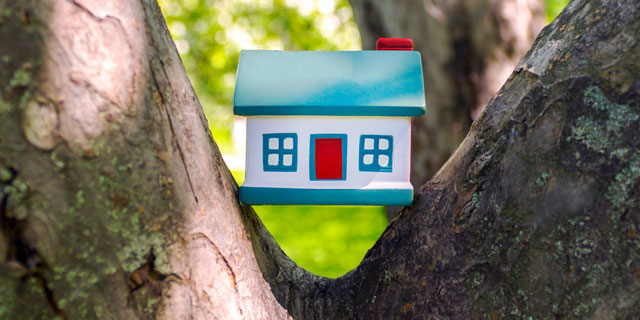A couple of years back, my wife and I became first-time homebuyers. This itself isn’t anything special since many Canadians own their homes, but what people are shocked to hear is that we had a down payment of $200,000.
Most people assume that we had help from our parents (which we did), but the majority of that money was saved on our own. We were fortunate that neither of us had any student debt but saving up that down payment came down to time, patience and in some cases, luck.
Buying a home was always part of the plan
We both knew we wanted to be homeowners one day, so we made sure that was part of our budget. At the start, we tracked all our spending for a few months so we could see where our money was going. Once we saw what we were spending our money on, we made changes so we could divert any extra savings towards the down payment of our home.
That doesn’t mean we gave up everything and had no fun. Buying a home was just one of our main priorities, so we wanted to be smart with our money. One of our passions was travel, and we didn’t feel like we had to cut back on it since we were setting aside funds for our adventures every month. As long as we didn’t go over that budget, we could go anywhere without worrying about how it would affect our other saving goals.
We didn’t buy right away
A lot of people buy homes as soon as they’re a few years into their working years or right before they get married, but my wife and I waited until our mid-30’s before we finally took the plunge. This wasn’t done for a particular reason. We had looked at homes a decade ago but timing (and pricing) didn’t feel right.
When we were ready to buy, we had both been working full-time for more than a decade. As you can imagine, that gave us a lot of time to save. My employer at the time also offered an employee stock plan which matched contributions by 50%. When it came time to close on our condo, I was able to cash out $30,000 in stock.
We didn’t let lifestyle creep affect us
My first full-time job paid me about $35,000 and when I bought the condo, I was making just over twice that. Despite the increase in salary over the years, I never increased my lifestyle. I lived at home for quite a while, packed my lunches and took public transportation. As you can imagine, that allowed me to save a lot of money.
My wife had a similar lifestyle. She had a roommate when we were dating, and when we moved in together, we got a modest apartment, even though we could have afforded something nicer. Sure, we spent some money along the way, such as our wedding and buying a used car. But overall, we tried to keep our costs down.
We took advantage of different savings accounts
Even though buying a home was a priority, we were sure to make contributions to both our Retirement Savings Plan (RSP) and Tax Free Saving Accounts (TFSA). Putting money into our RSP was an easy decision since it would give us a tax refund (which we put towards our home down payment), and we knew we could withdraw the money later as part of the Home Buyer’s Plan.
Both of our TFSA accounts were set up before we thought about being homeowners, and we were utilizing them for long term savings. This was good since we saw some growth over the years, but we were also at risk if there was a market downturn when we needed the money.
Any money that was set aside specifically for the home down payment was parked in a high interest savings account with an online bank. We were only making about 2% interest, but that was much higher than what our regular bank was offering. We also considered purchasing GICs, but since we weren’t sure when we would buy, we kept everything in cash.
In the end, because we had been diligently saving, and the fact that our parents had gifted us some money, we didn’t have to withdraw any funds from our RSP or TFSA.
It goes beyond the $200,000
The $200,000 we saved may seem impressive, but it would almost be meaningless if we overextended ourselves. When we first started looking at homes, our mortgage broker advised us that lenders would approve us for homes in the low 7-digit range.
When we heard this, we laughed. We could barely process the idea that we could buy a million-dollar home. According to the lender’s calculations, we could afford it, but we weren’t sure. We knew that we wanted to have children in the future, we wanted to continue to travel, save for our retirement and furnish our home. In the end, we settled on a maximum budget of $500,000.
At the time, $500,000 was enough to buy a good-sized condo or maybe a small house in Toronto where we resided. Although owning a house was something we discussed, buying a condo was the right choice for us. The search didn’t take long, and we came in way under budget, which meant we only needed a mortgage of about $220,000.
Home prices in Canada are much higher now, but I don’t think we would have done anything differently. Yes, we could have likely bought earlier when prices weren’t as crazy with a lower down payment, but we weren’t ready to be homeowners yet.




 Saving strategies
Saving strategies
